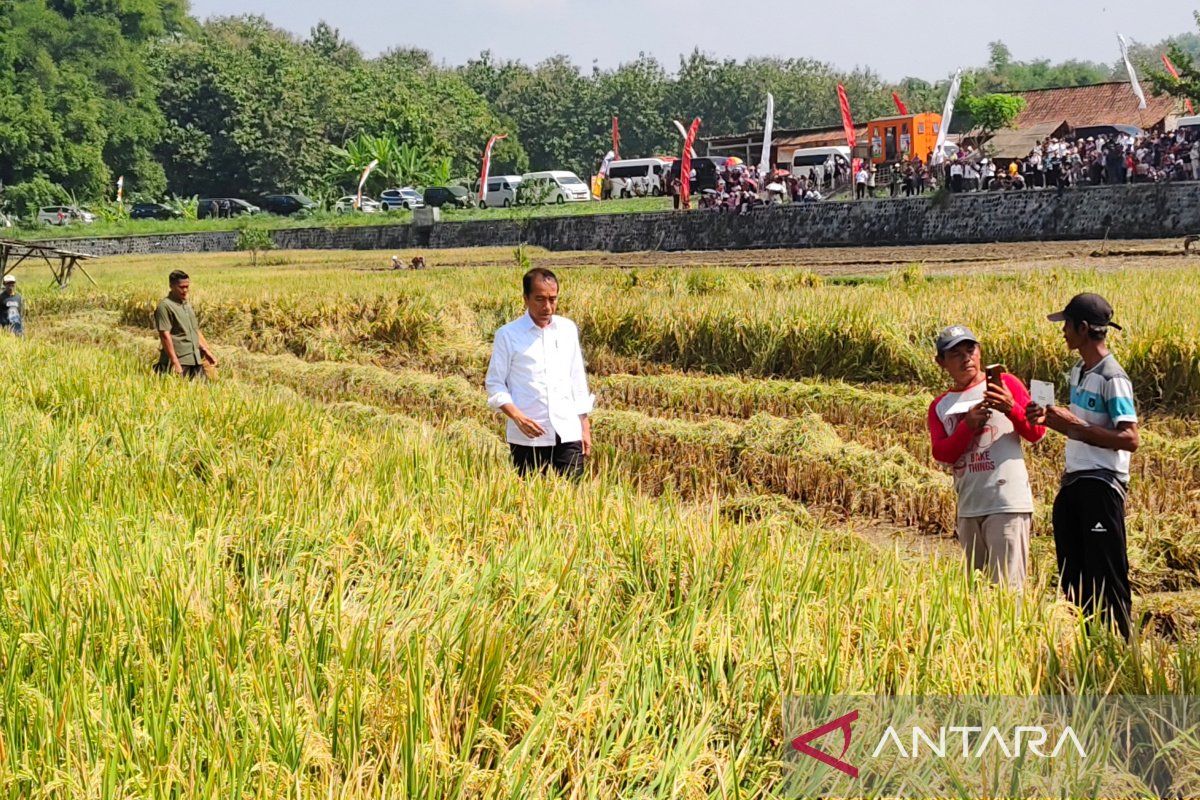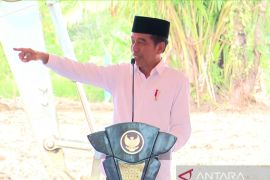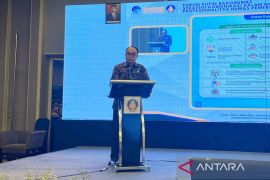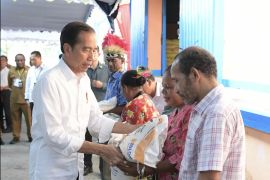During his visit to the hamlet, the head of state, popularly nicknamed Jokowi, was accompanied by Agriculture Minister Andi Amran Sulaiman and Public Works and Housing Minister Basuki Hadimuljono.
The Sangiran water pumping station is a part of the government's water pumping program that aims to help farmers deal with the impacts of prolonged droughts on their paddy fields.
Shortly after arriving at Sangiran Hamlet, President Jokowi witnessed up close the operation of the water pumping station and rice harvested by local farmers.
Conversing with journalists on the sidelines of his visit, Jokowi affirmed that the water pumping machines could derive full benefit from ground and river water to irrigate vulnerable rice fields.
According to President Jokowi, the water pumping program was not merely carried out in Karanganyar District, Central Java, but also in several other provinces.
A prolonged drought was forecast to hit Indonesia in July, August, September, and October of 2024, he remarked, adding that this water pumping program was expected to help farmers boost rice productivity.
In Central Java, the government has set a target of producing 9.8 million tons of milled dry grain, he stated.
Owing to the implementation of the water pumping program through which Central Java has received 4,300 water pumping machines, the province will hopefully be able to provide an additional production of milled dry grain of up to 1.3 million tons, Jokowi stated.
The farmers, who received the government's water pumping machines as assistance, are expected to not encounter difficulties during the dry season, he remarked.
During the dry season, Jokowi highlighted the importance of implementing good water management and optimizing Indonesia's rice production to reduce imports of the commodity.
Coordinating Economic Minister Airlangga Hartarto had revealed earlier that Indonesia would again import three million tons of rice this year to fulfill its rice deficit caused by the El Nino weather pattern.
Last year, Indonesia imported around 3.5 million tons of rice, he stated, adding that the El Nino climate pattern that recently impacted Indonesia had caused a national rice deficit.
Related news: Namibia keen to learn water sustainability from Indonesia: legislator
Related news: Indonesia, Australia collaborate on innovative water resilience tool
Translator: Aris W, Rahmad Nasution
Editor: Aditya Eko Sigit Wicaksono
Copyright © ANTARA 2024












